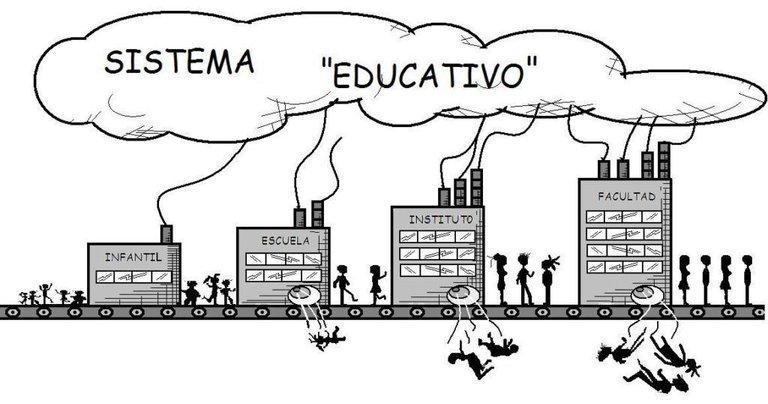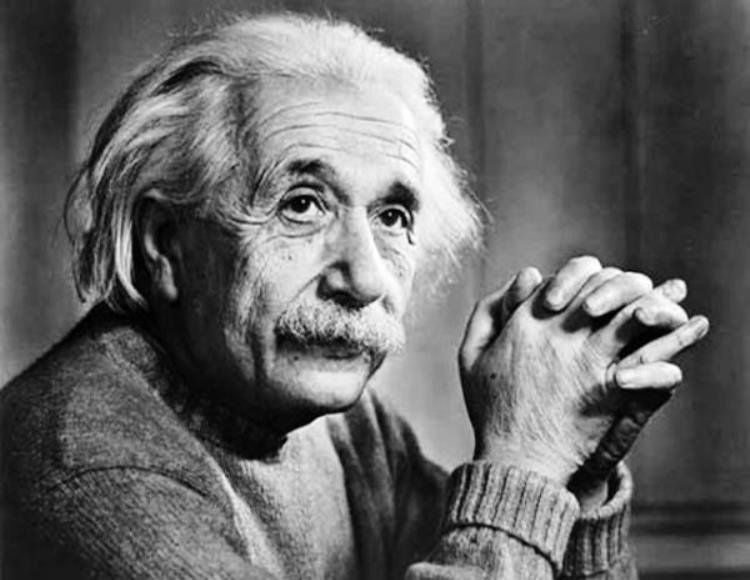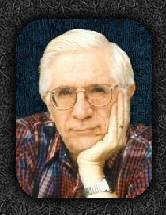ESP
 )
)Partiendo de esto cabe hacerse una pregunta, ¿la educación cumple su objetivo? Hoy en día los estudiantes son personas a las que se les impone una realidad, evitando que tengan una perspectiva distinta a la que aprenden, los niños y jóvenes anhelan crecer en libertad, de manera de que su aprendizaje no debe considerarse concluyente o absoluto bajo limites, las ideas y opiniones son aspectos que se crean, evolucionan, mantienen o mejoran.
En este sentido, muchos saben que la educación es de gran importancia, sin embargo, esta no existe de la forma que debería presentarse o darse, las escuelas intentan incluir y contener, e incluso formar trabajadores y no seres autorrealizados que buscan capacitarse para un bien común e incidir en el continuo aprendizaje, fijando así como principal culpable de que el estudiante fracase al sistema de educación, un sistema que solo crea espacios tediosos y aburridos, las opiniones de los jóvenes no son tomadas en cuenta, existen menos argumentos para comprobar la veracidad de las cosas, los insultos y agresiones verbales por parte de los educadores no ayudan en la búsqueda de otros ideales, el conocimiento que se implementa cambia con el pasar de los años, sin embargo la forma de impartirlo queda intacta.
Por ello, los estudiantes, se convierten en algo medible, cuantificable y observable, pero, ¿Por qué medible? Si cada persona es única y no debe ser catalogada por números o letras, ¿Por qué los planteles educativos consideran más importantes los índices académicos y no el verdadero conocimiento? Solo los estimulan a competir. La comprensión emocional se convirtió en algo que está en peligro de extinción, dándole una imagen a las escuelas de cárceles o guarderías, dejando a un lado los valores, las opiniones y las orientaciones.
No fue hasta a partir del siglo XVIII que nació en Prusia el lema de “educación pública, gratuita y obligatoria”, con la finalidad de disminuir el momento de necesidad que se desencadenaba para ese entonces, creando así escolaridades divididas por castas, faces, materias y profesores formando seres dóciles o títeres capaces de ser dominados esparciéndose por el mundo y convirtiéndose en una herramienta útil para mantener la estructura actual en la sociedad, un colectivo mecanicista, manejable por una autoridad que le dice a todos que hacer, cuando y como.

Desde el punto de vista psicológico los niños son condicionados a obedecer, internados en un sistema que simula un engranaje, parecido a una fábrica, seleccionando al que aprende y al que no, alterando su capacidad de desarrollo únicamente por no cumplir las expectativas deseadas.
De acuerdo al diccionario de la Real Academia Española (RAE), educación no es sinónimo de escuela, el centro de la educación es el niño y aun así no es tomado como factor fundamental, solo se les enseña a prepararse para un puesto laboral que cumpla sus necesidades cuando sean adultos, sin darse cuenta que los niños nacen con capacidades que hay que ir desarrollando, con ideas que no frustren su aprendizaje, ellos son seres que piensan, imaginan, razonan y juegan, pero la escuela solo los hace competir, abandonan su entusiasmo por conocer ya que se les impone cuáles son sus deberes.
Si bien es cierto que los niños aprenden gracias a la interacción social, tomando en cuenta el contexto que los rodea, son genios que involucionan con el tiempo. Como seres humanos llevamos todas aquellas adaptaciones evolutivas en nuestros genes, nuestra mente es más que solo millones de células funcionales, todas ellas almacenan la información aprendida, pero no es guardada en su totalidad y todo radica en la forma en que se asimila. Por eso Albert Einstein decía que:

“La sabiduría no es producto de la escolarización, sino de un intento a lo largo de la vida de adquirirlo.”
Según el estudio psicoestadístico realizado en la Escuela “Dr. Vicente Peña” por estudiantes de psicología de la Universidad Bicentenaria de Aragua afirmaron que el 70% de los niños no se sienten plenamente capaces para afrontar los retos que se les presentaran más adelante y que el 80% considera que los maestros no ayudan a entender las cosas de una manera más dinámica.
Ahora bien, la neurociencia es una disciplina que estudia una parte del aprendizaje, no obstante el conocer es algo de dicha o placer, las metodologías son solo mecanismos erróneos, que según el educador investigativo chileno Carlos Calvo, repetirle numerosas veces a un niño una orden en específico no es una forma correcta de enseñar, de crear o recrear.
Asimismo, los errores también son un factor de gran ayuda en el aprendizaje, estipularse a un niño el tiempo con el que cuenta para su desarrollo crea a un ser vacío y agrieta su individualidad. El amor es el arma fundamental para enseñar, los premios y castigos son solo limitantes, convirtiendo todo en un sistema conductista disminuyendo las ganas de progresar del infante.
Sin duda cada niño tiene una forma de aprender diferente, pero mantiene relación con el resto. Las cosas deben surgir de manera espontánea, una de las mayores disyuntivas a las que se presenta el individuo es el preguntarse ser o no ser, visualizar perspectivas distintas de sí mismo crea una autonomía. Francisco Álvarez poeta español expuso que:

“Nadie te enseña a ser fuerte, pero te obligan. Nunca nadie quiso un débil para confiar, nadie te enseña los pasos en un mundo que te obliga cada día a poder levantarte y caminar
Por ello el niño debe evaluar cómo se siente, no existen las calificaciones. El objetivo es tener un seguimiento de él, identificar los estímulos, integrar la superación de retos, conocer las edades diferentes y sus etapas y forjar su disciplina. El guía no debe encarnar a un ser autoritario, debe ser comprensivo e ideal para que el infante desarrolle todas sus etapas con éxito y esmero.
Por otra parte, las reglas deben ser formadas según las nuevas necesidades, opiniones y formas de entender, por ello, el dialogo es otra herramienta para el ser humano y es allí donde se crea la realidad, aportando la participación de todos para crear acuerdos, ideas, incentivar la responsabilidad y construir los vínculos.
De esta manera, un diploma no medirá el aprendizaje sino el hecho que al final ellos encuentren su vocación y sigan buscando, conociendo y creando cosas nuevas. El hogar forma las bases para el cuidado de lo que se tiene y se quiere. La educación no es pedagogía, es cuestión de que las personas encuentren su identidad individual y social.
Es pertinente señalar que la psicología de la educación ayuda en la orientación de un bien común, no solo se ocupa de la conducta de profesores y estudiantes, también se aplica a otros grupos como los auxiliares de los profesores, primera infancia, inmigrantes y tercera edad.
Finalmente, a pesar que la Psicología Educativa ocupa el segundo lugar detrás de la Psicología Clínica, en cuanto a perfiles de actividad profesional el papel del psicólogo en los centros educativos se ha ido diluyendo en los últimos años (otros profesionales están desarrollando muchas de las funciones específicas del psicólogo, pero sin la formación adecuada) y pocos estudiantes de Psicología realizan esta elección.
Por ello, es necesario delimitar las funciones del psicólogo educativo diferenciándolo de otros roles profesionales (especialistas en pedagogía terapéutica, consultores…), incorporar psicólogos en todos los centros educativos con especialización en las distintas etapas con un rango de alumnado aceptable (200 alumnos) que posibilite el desempeño realista de las funciones descritas que llevará a cabo en colaboración con otros profesionales (profesores, especialistas en pedagogía terapéutica, etc.), y exigir un postgrado de Psicología Educativa con directrices propias que lo habilite para el ejercicio de la profesión, es decir, un itinerario formativo específico enmarcado dentro del Espacio de Educación Superior.
ENG
Forbidden education: the cruel reality of society
Education is one of the processes that are a fundamental part in the development of citizenship; The primary objective of this process should be to facilitate future professionals in the world the acquisition of knowledge, skills and values that will allow them to be useful in society in the future. Starting from this, it is worth asking a question, does education fulfill its objective? Nowadays students are people to whom a reality is imposed, preventing them from having a different perspective from the one they learn, children and young people yearn to grow in freedom, so that their learning should not be considered conclusive or absolute under limits , ideas and opinions are aspects that are created, evolved, maintained or improved.
In this sense, many know that education is of great importance, however, it does not exist in the way it should be presented or given, schools try to include and contain, and even train workers and not self-realized beings who seek to train for a common good and influence continuous learning, thus establishing as the main culprit that the student fails the education system, a system that only creates tedious and boring spaces, the opinions of young people are not taken into account, there are fewer arguments to verify the veracity of things, insults and verbal aggressions by educators do not help in the search for other ideals, the knowledge that is implemented changes over the years, however the way of imparting it remains intact.
Therefore, students are used in something measurable, quantifiable and observable, but why measurable? If each person is unique and should not be cataloged by numbers or letters, why do schools consider academic indexes more important and not true knowledge? They only encourage them to compete. The emotional compression became something that is in danger of extinction, giving an image to the prison or nursery schools, leaving aside values, opinions and orientations.
It was not until the 18th century that the motto of "public, free and compulsory education" was born in Prussia, with the aim of reducing the moment of need that was unleashed at that time, thus creating schools divided by castes, faces, subjects and teachers forming docile beings or puppets capable of being dominated by spreading throughout the world and becoming a useful tool to maintain the current structure in society, a mechanistic collective, manageable by an authority that tells everyone what to do, when and how.
From the psychological point of view, children are conditioned to obey, interned in a system that simulates a gear, similar to a factory, selecting those who learn and those who do not, altering their development capacity only because they do not meet the desired expectations.
According to the dictionary of the Royal Spanish Academy (RAE), education is not synonymous with school, the center of education is the child and even so it is not taken as a fundamental factor, they are only taught to prepare for a job that fulfills their needs when they are adults, without realizing that children are born with capacities that must be developed, with ideas that do not frustrate their learning, they are beings who think, imagine, reason and play, but school only makes them compete, they drop out their enthusiasm for knowing as their duties are imposed on them.
While it is true that children learn through social interaction, taking into account the context that surrounds them, they are geniuses who regress over time. As human beings we carry all those evolutionary adaptations in our genes, our mind is more than just millions of functional cells, all of them store the information learned, but it is not stored in its entirety and everything lies in the way it is assimilated. That is why Albert Einstein said that:

"Wisdom is not the product of schooling, but of a lifelong attempt to acquire it."
According to the psycho-statistical study carried out at the “Dr. Vicente Peña ”by psychology students from the Bicentennial University of Aragua stated that 70% of the children do not feel fully capable to face the challenges that will be presented to them later and that 80% consider that the teachers do not help to understand the things in a more dynamic way.
Now, neuroscience is a discipline that studies a part of learning, although knowing is something of joy or pleasure, the methodologies are only erroneous mechanisms, which according to the Chilean investigative educator Carlos Calvo, repeating an order to a child numerous times specifically, it is not a correct way to teach, create or recreate.
Likewise, mistakes are also a factor of great help in learning, stipulating a child the time they have for their development creates an empty being and cracks their individuality. Love is the fundamental weapon to teach, rewards and punishments are only limiting, turning everything into a behavioral system, reducing the infant's desire to progress.
Without a doubt, each child has a different way of learning, but it maintains a relationship with the rest. Things must arise spontaneously, one of the biggest dilemmas that the individual is presented with is asking himself to be or not to be, visualizing different perspectives of himself creates autonomy. Francisco Álvarez Spanish poet stated that:

“Nobody teaches you to be strong, but they force you. Nobody ever wanted a weak person to trust, nobody teaches you the steps in a world that forces you every day to be able to get up and walk ”
Therefore, the child must evaluate how he feels, there are no qualifications. The objective is to monitor him, identify the stimuli, integrate the overcoming of challenges, know the different ages and their stages and forge his discipline. The guide should not embody an authoritarian being, should be understanding and ideal for the infant to develop all its stages with success and care.
On the other hand, the rules must be formed according to the new needs, opinions and ways of understanding, therefore, dialogue is another tool for the human being and it is there where reality is created, providing the participation of all to create agreements, ideas, encourage responsibility and build relationships.
In this way, a diploma will not measure learning but the fact that in the end they find their vocation and continue searching, knowing and creating new things. The home forms the basis for the care of what you have and what you want. Education is not pedagogy, it is a matter of people finding their individual and social identity.
It is pertinent to point out that the psychology of education helps in the orientation of a common good, it not only deals with the behavior of teachers and students, it also applies to other groups such as teacher aides, early childhood, immigrants and the elderly.
Finally, despite the fact that Educational Psychology ranks second behind Clinical Psychology, in terms of professional activity profiles the role of the psychologist in educational centers has been diluted in recent years (other professionals are developing many of the functions specific to the psychologist, but without adequate training) and few psychology students make this choice.
For this reason, it is necessary to define the functions of the educational psychologist, differentiating him from other professional roles (specialists in therapeutic pedagogy, consultants ...), to incorporate psychologists in all educational centers with specialization in the different stages with an acceptable range of students (200 students) who allow the realistic performance of the functions described that will be carried out in collaboration with other professionals (teachers, specialists in therapeutic pedagogy, etc.), and require a postgraduate degree in Educational Psychology with its own guidelines that enables it to exercise the profession, is that is, a specific training itinerary framed within the Higher Education Area.